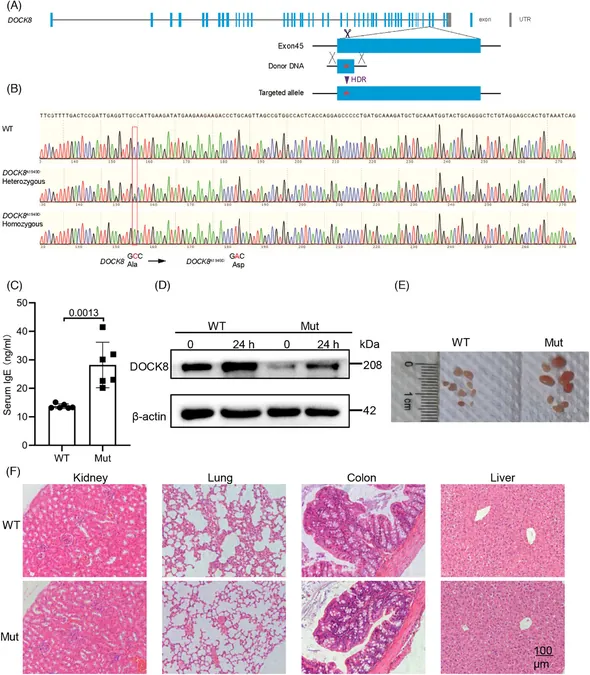
Breakthrough Study Uncovers How DOCK8 Mutation Sabotages Immune System Cells!
2024-10-09
Author: Li
Groundbreaking Research on DOCK8 Gene
A groundbreaking research study, published in the esteemed journal MedComm, sheds light on the pivotal role of the dedicator of cytokinesis 8 (DOCK8) gene in the differentiation of helper T cells, which are essential warriors of our immune system.
Impact of DOCK8 Mutations
Led by Dr. Panpan Jiang and his team at Tongji Medical College, the study reveals that mutations in DOCK8 can severely disrupt the glycolytic pathway—an essential metabolic function that fuels the activation and expansion of CD4+ T cells.
Experimental Findings
Through a series of rigorous in vitro experiments and metabolic assays, the researchers found that T cells lacking DOCK8 showed drastically reduced glucose uptake and diminished lactate production.
Consequences of Metabolic Disruption
This alarming shift in their metabolic behavior not only hampers energy production but also correlates directly with impaired differentiation of these crucial helper T cells, vital for orchestrating robust immune responses.
Quotes from the Research Leader
"Our findings reveal that DOCK8 mutations not only damage the structural functions of immune cells but also critically disrupt their metabolic programming," stated Dr. Jiang.
Insights into Metabolic Flexibility
This research underscores the urgent necessity for metabolic flexibility in immune cell function, proposing that enhancing glycolytic activity could potentially restore immune responses in individuals suffering from DOCK8 mutations.
Exploration of Signaling Pathways
In an insightful exploration of the consequences of disrupted glycolysis, the team identified downstream impacts on signaling pathways vital for T cell development.
Gene Expression Analyses
By conducting gene expression analyses, they highlighted key transcription factors that are negatively influenced by the altered metabolic states, illuminating the intricate relationship between metabolism and immune cell differentiation.
Potential for Novel Therapeutics
As we witness an escalating recognition of metabolic dysregulation in immune disorders, this study presents valuable insights that could pave the way for novel therapeutic approaches.
Future Research Directions
"By targeting metabolic pathways, we might develop innovative treatment strategies that enhance immune function in patients with DOCK8-related immunodeficiencies," Dr. Jiang emphasized.
Hope for Affected Individuals
These unparalleled findings hint at a promising future for research into targeted therapies, aimed at boosting immune responses for those grappling with genetic mutations that impair the functioning of DOCK8 and other related pathways.
Conclusion
As the medical community continues to unravel the mysteries of our immune system, this research stands as a beacon of hope for thousands affected by immune deficiencies. Could these findings lead to revolutionary treatments? Only time will tell!


 Brasil (PT)
Brasil (PT)
 Canada (EN)
Canada (EN)
 Chile (ES)
Chile (ES)
 España (ES)
España (ES)
 France (FR)
France (FR)
 Hong Kong (EN)
Hong Kong (EN)
 Italia (IT)
Italia (IT)
 日本 (JA)
日本 (JA)
 Magyarország (HU)
Magyarország (HU)
 Norge (NO)
Norge (NO)
 Polska (PL)
Polska (PL)
 Schweiz (DE)
Schweiz (DE)
 Singapore (EN)
Singapore (EN)
 Sverige (SV)
Sverige (SV)
 Suomi (FI)
Suomi (FI)
 Türkiye (TR)
Türkiye (TR)